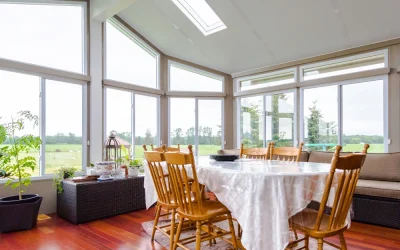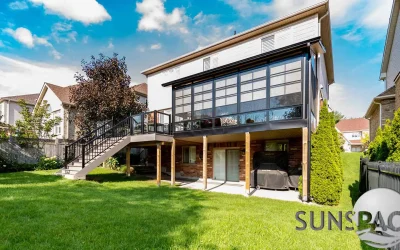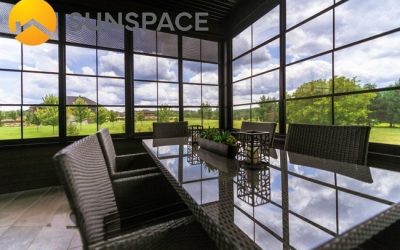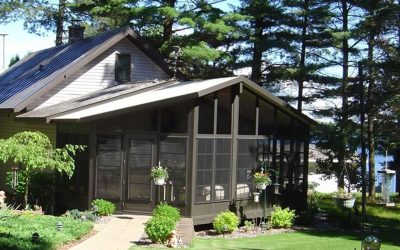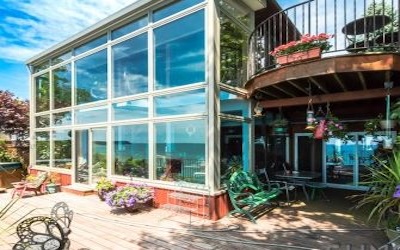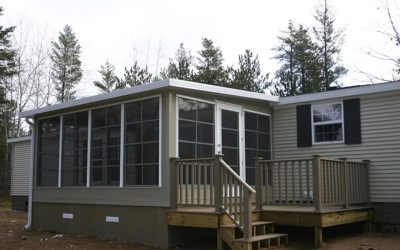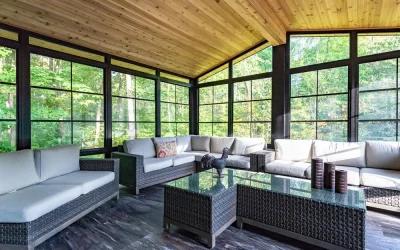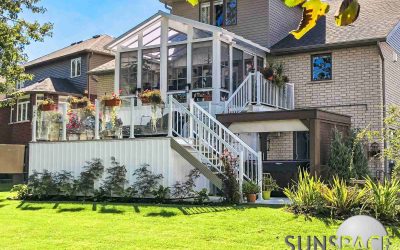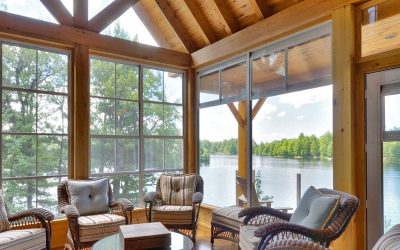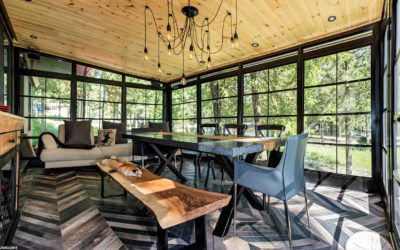This Sunroom Contractor Selection Guide outlines how to verify licenses, permits, codes, contracts, and warranties to ensure your hiring decision is informed and safe.
Get a short consultation with Sunroom Designs New England to review options, local code needs, and sunroom designs in Connecticut for your town and site.
Which Licenses and Insurance Should Be Checked?
Requirements vary by state, so confirm the basics first to avoid delays or disputes later. In Connecticut, home improvement contractors must be registered with the Department of Consumer Protection (DCP) and carry general liability insurance when working with homeowners.
Simple checks help verify status and coverage:
- Confirm DCP registration is active under the exact business name on the contract.
- Request the current general liability and workers’ compensation certificates for the contracting entity.
- If electrical, HVAC, or plumbing work is involved, verify the relevant trade licenses as well.
How Will Permits, Codes, and Snow Loads Be Handled?
New England towns enforce strict snow, wind, and energy standards that directly affect design, materials, and inspections. That’s why it’s essential to clarify a contractor’s code process upfront.
Ask how the team will:
- Handle permit applications, track inspections, and provide stamped drawings upon request from the building official.
- Size roof framing, connections, and footings for local ground and roof snow loads per IBC/ASCE 7 criteria.
- Identify which AAMA/NSA 2100 sunroom category applies to the structure’s thermal and structural performance.
What Experience Really Matters for a New England Sunroom?
Experience shows that flashing, drainage, and thermal choices prevent leaks and condensation during harsh winters. Review portfolios of similar projects and ask for local references from three to five years ago to confirm long-term performance.
Quick checks to confirm a good fit:
- View completed projects with similar roof tie-ins, decks, or foundations.
- Clarify whether in-house crews or subcontractors perform the work and how site supervision is managed.
- Ask how the team designs for water management, condensation control, and overall thermal comfort.
What Must the Contract, Deposit, and Warranty Include?
Clear paperwork keeps projects calm and protects both parties. Connecticut encourages homeowners to verify contractor registration, insurance, and contract details before signing.
A strong agreement should include:
- Scope with drawings or specs, brand names, glass types, roof system, and finish details.
- Responsibilities for permits, inspections, and change orders, along with the punch-list process.
- Written warranties for structure, glass, finishes, and labor with defined terms and coverage.
State Rules Compared at a Glance
| State | Registration Requirement | Deposit Rules | Permit Responsibility |
| Connecticut | DCP registration is required for home improvement contractors. | No specific statewide deposit cap listed; follow contract terms and practical guidance. | The contractor typically obtains the required permits and coordinates inspections per the contract. |
| Massachusetts | HIC registration required; CSL often needed for structural work. | Deposit may not exceed one-third, except for special-order items. | The contractor must inform the owner about permits and obtain them. |
| Rhode Island | CRLB registration is required for residential and commercial work. | No statewide cap cited. | Contractor obtains permits per local building department rules. |
Tip: Always verify contract and permit rules using official sources like CT.gov and Mass.gov before signing.
Which Red Flags Should You Avoid?
Recognizing early warning signs helps you avoid trouble later.
Walk away if you notice:
- Permit Issues: Contractor asks you to pull your own permit.
- Insurance Refusal: Unwillingness to provide proof of insurance.
- Pressure to Sign: High-pressure sales tactics during the first meeting.
- Large Cash Deposits: Requests for unusually large upfront payments.
- Incomplete Bids: Proposals that ignore snow load, wind exposure, or required performance standards (AAMA/NSA 2100).
Ignoring these can lead to expensive change orders and project delays.
What Smart Questions Help Compare Bids?
Asking identical questions across bids simplifies comparisons and highlights expertise.
Ask each contractor:
- What ground and roof snow loads, wind exposure, and design methods are used for this address?
- Which AAMA/NSA 2100 category and ratings apply to the enclosure?
- Who handles flashing and integration with the existing roof or deck, and how is moisture managed?
- Which inspections are required, and who attends to answer the building official’s questions?
- What milestones trigger each payment, and how is completion defined?
How Should Timeline, Budget, and Changes Be Managed?
Set a schedule that accounts for permitting, manufacturing lead times, weather, and inspections. Align payments with milestones, not arbitrary dates.
Maintain a straightforward change-order process that defines price adjustments and requires approval before work continues.
Plan a final walkthrough tied to permit sign-off so completion, punch list, and final payment stay coordinated.
Why Choose Regional Specialists?
Regional specialists understand local code paths, inspectors, and weather patterns, which shortens approvals and ensures compliance. Their knowledge of snow loads, condensation control, and thermal design leads to more durable, efficient installations.
They also provide accurate expectations about comfort, seasonal use, and energy performance consistent with AAMA/NSA standards for sunrooms.
That experience translates to cleaner tie-ins, fewer surprises, and better performance through New England’s toughest months.
FAQs
Do sunrooms need a permit in Connecticut?
Yes. Most sunroom projects require a building permit. The contractor should apply for it, coordinate inspections, and provide drawings if required by the building official. Always confirm permit responsibility in your contract.
What deposit is legal in Connecticut?
For home improvement contracts, deposits are typically limited to one-third of the total price, except for special-order materials. Payment schedules should align with milestones, holding the final payment for verified completion.
What snow load should a New England sunroom handle?
Design loads follow your town’s adopted IBC/ASCE 7 code, accounting for local ground and roof snow loads plus wind exposure. Ask each bidder to specify these values in their proposal.
Which performance standard applies to sunrooms?
The AAMA/NSA 2100 standard governs the structural and thermal performance of sunrooms and is referenced by many building officials. Request the specific category and test criteria used for your project.
Need a Quick, Friendly Review?
If you’d like help comparing quotes or confirming code paths, schedule a no-pressure consultation with Sunroom Designs New England. Share your town and goals, and our team will help you review designs, confirm compliance, and plan a sunroom built for New England weather and your budget.

